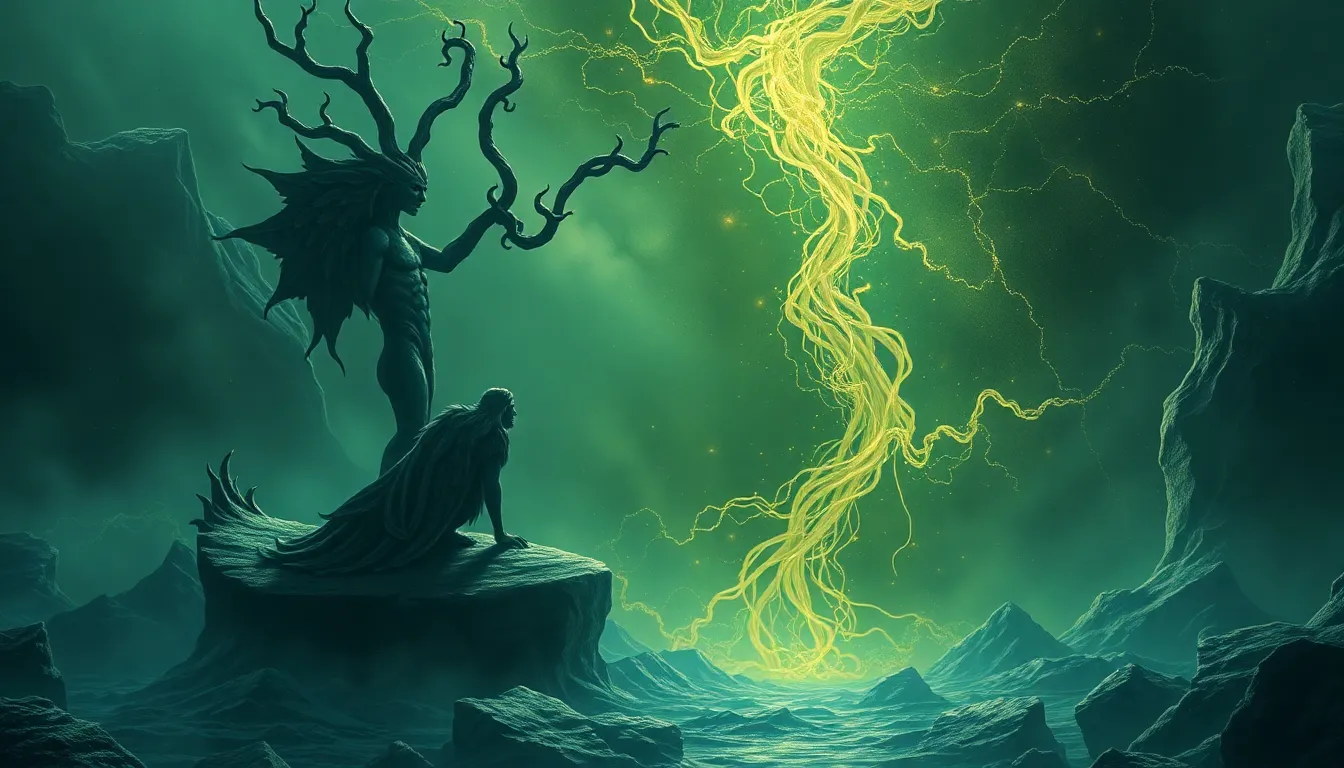Why Do We Love End of the World Myths? The Psychology Behind It
I. Introduction
End of the world myths have pervaded human culture across different civilizations and epochs. From ancient prophecies to modern apocalyptic literature, these narratives often capture our imagination and stir our emotions. They resonate deeply within us, prompting questions about existence, morality, and the future. This article aims to explore the psychological reasons behind our fascination with these myths, delving into how they reflect our fears, hopes, and societal dynamics.
II. Historical Context of End of the World Myths
Throughout history, various cultures have conjured end of the world scenarios, often linked to their specific beliefs and existential concerns. Some notable examples include:
- The Mayan Calendar: The prediction of the world ending in 2012 sparked widespread attention and concern.
- Christian Eschatology: The Book of Revelation presents vivid imagery of apocalyptic events, influencing Western thought for centuries.
- Greek Myths: Tales of divine retribution and cosmic battles, such as those found in Hesiod’s works, illustrate the ancient Greeks’ fears of chaos and destruction.
These myths serve not only as cautionary tales but also reflect the cultural values and anxieties of their times.
III. The Psychology of Fear and Anxiety
Fear is a fundamental aspect of human psychology, serving as a protective mechanism that has evolved over millennia. End of the world myths tap into our existential fears, reflecting concerns about mortality, loss, and the unknown. The impact of contemporary global issues, such as climate change and pandemics, has heightened our anxiety levels, making these myths more relevant and compelling.
Key psychological insights include:
- Existential Anxiety: The fear of oblivion and the quest for meaning in a seemingly chaotic universe.
- Collective Fears: Societal concerns about political instability, environmental disasters, and technological threats.
These anxieties often find expression through apocalyptic narratives, allowing individuals to confront their fears in a mediated format.
IV. The Allure of Catastrophe
The phenomenon of “disaster voyeurism” speaks to our attraction to catastrophic events. There is a thrill associated with imagining worst-case scenarios, which can be both exhilarating and terrifying. This allure stems from several factors:
- Escapism: Engaging with apocalyptic stories allows individuals to escape their mundane realities.
- Societal Critique: These narratives often challenge existing norms and structures, prompting critical reflection on contemporary life.
- Survival Instincts: The idea of survival in the face of catastrophe can be both empowering and motivating.
Through these narratives, we explore the depths of human resilience and the potential for transformation in times of crisis.
V. Coping Mechanisms and Catharsis
Apocalyptic stories provide a valuable means of processing personal and collective fears. They allow for catharsis, a psychological release from pent-up emotions. This concept of catharsis plays a crucial role in literature and media:
- Literature: Novels such as “The Road” by Cormac McCarthy offer bleak yet poignant reflections on human nature amidst devastation.
- Films: Movies like “Children of Men” explore dystopian futures, invoking empathy and emotional responses.
These narratives help audiences confront their feelings about loss, change, and the fragility of life, providing a safe space for reflection.
VI. Social Connection and Community Building
End of the world myths often foster social connections, creating shared beliefs that bond individuals together. These myths can bring people together through collective narratives, such as:
- Shared Experiences: Communities often rally around common fears and hopes related to apocalyptic scenarios.
- Survivalist Groups: The rise of preparedness communities and survivalist movements demonstrates how these myths inspire a sense of belonging and purpose.
By engaging with these narratives, individuals can forge new social bonds, creating a sense of community in the face of uncertainty.
VII. The Role of Media and Technology
Modern media plays a significant role in amplifying end of the world myths. The proliferation of information through various platforms influences our perceptions and discussions around apocalyptic scenarios:
- Social Media: Platforms like Twitter and Facebook allow for quick dissemination of apocalyptic narratives and theories, creating a global dialogue.
- Video Games: Games such as “The Last of Us” immerse players in catastrophic worlds, enhancing emotional engagement and exploration of survival themes.
This media landscape not only reflects our fears but also shapes our understanding of them, making apocalyptic scenarios an integral part of contemporary culture.
VIII. The Search for Meaning and Purpose
End of the world myths often prompt existential reflection, leading individuals to search for meaning in life and death. These narratives can fulfill a desire for purpose, providing frameworks for understanding:
- Existential Questions: They encourage contemplation of life’s significance and our place in the universe.
- Spiritual Exploration: Many individuals find spiritual insights within apocalyptic myths, offering comfort in the face of uncertainty.
Through these reflections, individuals may reevaluate their beliefs and values, fostering personal growth and resilience.
IX. Critiques and Counter-Narratives
While end of the world myths hold a captivating allure, they are not without criticism. Some argue that these narratives can promote fatalism and despair. However, counter-narratives exist that emphasize hope and resilience:
- Hopeful Futures: Stories that envision positive outcomes and solutions to crises promote optimism.
- Resilience Narratives: Emphasizing human adaptability and strength in adversity encourages proactive responses.
It is essential to balance fascination with apocalyptic scenarios with narratives that inspire hope and resilience, ensuring a comprehensive understanding of our collective psyche.



